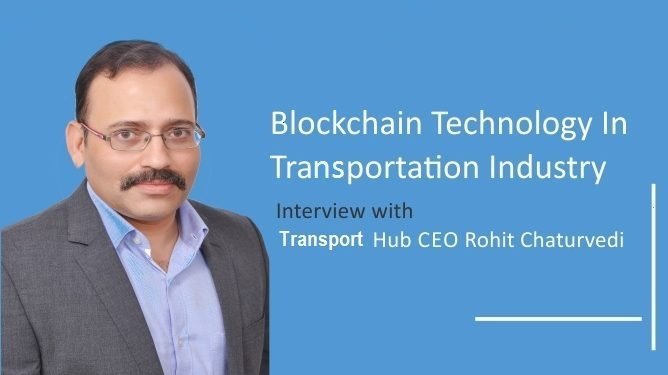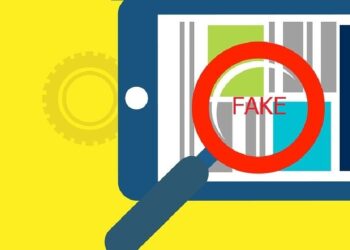Blockchain technology is set to transform transportation industry by its unique features like – security, Immutability, decentralized system, performance and reliability. The adoption of Blockchain technology in transportation industry has been significantly increased in recent years. Blockchain in Transport Alliance (BiTA), a member-driven organization encouraging the adoption of blockchain within the logistics industry. To understand more deeply, i am with Transport Hub CEO Rohit Chaturvedi to discuss the use of blockchain technology and how it is transforming the transportation industry.
CXO VOICE: How blockchain technology being used in transportation industry?
Rohit Chaturvedi: Blockchain technology can be used in the transportation industry in a number of ways . The usages are restricted only by imagination. Few ways in which the technology can be used are Smart Contracts- the contracts which will execute themselves on meeting the conditions precedent, tracing the provenance of goods, tracking and tracing goods, cargo protection and many more.
CXO VOICE: Can you explain, how blockchain technology works?
Rohit Chaturvedi: In layman’s words blockchain is series of transactions with unique history behind it in a way that history cannot be altered. Current transaction’s authentication is not only dependent on the transaction but also the history. Of course , someone need to approve the transaction based on in its current state and the history, which is done by majority of participants called nodes thereby validating the authenticity. The technology utilizes cryptography and intelligent design.
CXO VOICE: What is the latest technological advancement in transportation industry using blockchain technology?
Rohit Chaturvedi: As far as my experience of Indian logistics industry is concerned, I have not come across any Indian company using blockchain in significant way though leading business houses have formed teams in identifying use cases and developing solutions built on blockchains.
However, some international companies like Maresk, DHL etc. have started pilots on cross border transaction of goods, information and documents.
Therefore, it seems most of the focus is currently beamed on reducing paperwork and disintermediation.
CXO VOICE: How IoT making it more efficient and transparent ?
Rohit Chaturvedi: In general, IoT can make more blockchain by reducing or even eliminating human involvement in the value chain, thus, making the embedded information more reliable . For example, telematic devices can send the tracking data of goods on realtime basis which will be embedded in the hash or unique identification of each transaction.
CXO VOICE: What are the major challenges for blockchain?
Rohit Chaturvedi: The biggest challenge is lack of interoperability between various blockchain platforms . That means all the constituents of any chain of transactions must be on the same platform. However, these constituents usually interact with wide gamut of stakeholders which will necessitate working on many platforms in parallel.
Another major challenge is robust legal enforcement of contracts, which is especially cumbersome in India. This problem is not expected to vanish soon and can cause serious doubts on the efficacy of the technology in India for long period.
CXO VOICE: Important things to know before adopting blockchain technology in India?
Rohit Chaturvedi: As mentioned above, detailed understanding of legal issues should be analyzed which is core non-technical driver of the adoption.
Creating ecosystem of people with readiness to adopt the technology is another important driver which will depend on ease of using the technology and cost-benefits to the participants.
CXO VOICE: What are the risk blockchain technology bring? How to avoid?
Rohit Chaturvedi: Blockchain technology ( in its most pervasive form) is dependent on decentralized architecture and validation by majority of nodes. The architecture makes its prone to frauds especially in the beginning . In addition, since there is no single clearing entity it is difficult to obtain redressal to the problems.
Solutions built on established and technologically proven platforms may avoid the problems.
Read More: How You Can Avail Business Loan In India: An Expert Guide




















